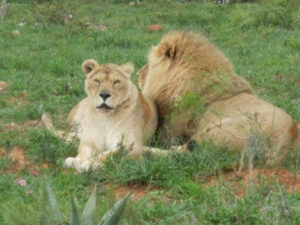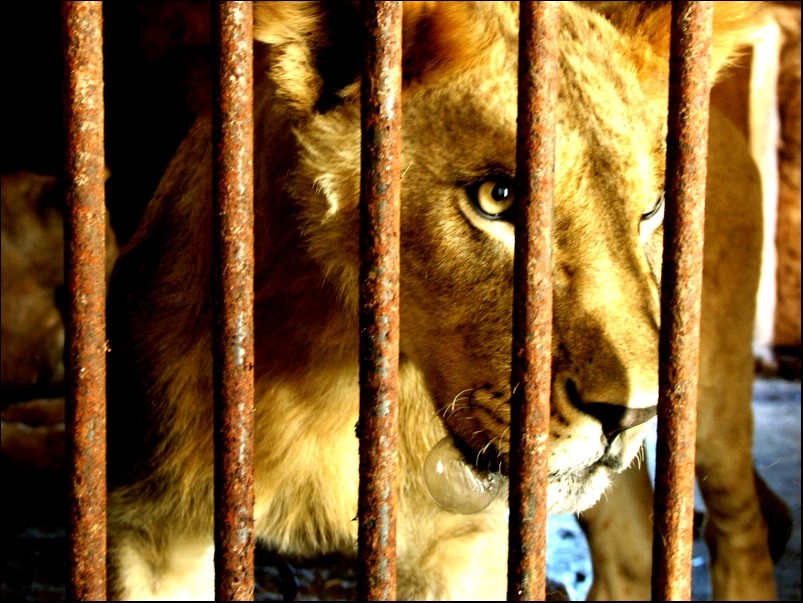Bella Copyright Zsolt
When the Buddha saw the truth of death, illness and old age, what had been hidden from him by his father to protect him from suffering, he left the royal palace. He vowed to not return, until he discovered the true nature of this world. That moment is referred to as The Lion’s Roar. What the Buddha realized was that the means to change oneself and the world was found within. Uncovering the root source of unnecessary suffering liberated the heart and mind. From that place arose unconditional compassion, joy regardless, and insight.
I am going to tell you a story because, the act of listening to a powerful story, a story that breaks your heart, is a means of connecting with that natural magic. It restores in us the language of the natural world alive beyond mental concepts. It is how we can reconnect with the beingness shared by everything in the world – animal, plant, spirit, and human. Once known, viscerally, we can no longer think of ourselves as separate, or able to justify killing and maiming to ward off the terror of life as it is.
The story began in Northern Romania, homeland of my mother’s family. Not finding any clues to the roots of my family, I began to read Romanian fairytales. I was seeking clues. It led me to create a storytelling project with Roma women and children in the city of Bacau for an organization called Ovidiu Rom.
That summer, the Roma women were given a grant to build toilets and roofs so they could have hygienic houses and warmth in the brutal Romanian winters. For four afternoons each week, the women shared stories they heard growing up, and stories of their own lives. A woman told us how she and her children slept in winter coats. To warm the house, she explained, her husband had taken wood from the new roof and built a fire. She laughed telling us that for a few minutes they were warm. “But the snow fell into the house.” I asked if I could visit.
The next day, wearing in a thick coat, I walked to her house. I could not think of what to say when I entered. It was freezing. Snow covered the floor. I said, “I am so sorry that you live in the cold.” To my surprise, the woman said, “I do not suffer as much as the lions.” I kept asking for another translation. I could not believe lions were in Romania?
Finally, she explained that the lions lived in the zoo. They were starving. She could hear their awful cries at dawn. She led me up a muddy road to an unnaturally silent forsaken zoo. I was horrified. I raised funds to have the Roma women, who were hated by Romanians, tell their stories in the zoo and provide their children with a summer camp, helping the zookeepers and the animals. That was how the story I am about to tell you started. It was a vision of storytelling in community as a compassionate event.
Engagement in a story is powerful. It is a ritual event. We are guided, so to speak, from our everyday experience to a territory of open-hearted visualization and listening beyond what we have been taught. Whether it is a fairytale or a personal memory, depending on the one who tells the story, the border into another world view – holistic, ecological, vibrating, always changing, without bias is accessed.
The border, like the wall between Rapunzel’s peasant house and the healing gardens of an ancient sorceress next door, or the dark forests separating palaces and meadows is where the whirling house of Baba Yaga, the great Russian mother nature, exists. Explanation leaves us, relying on surface interpretations, familiar understandings, no matter how interesting they are. Even helpful. But they do not propel us into the beautiful abyss of beingness we have learned to ignore or reject as dangerous. The images of tales pry us loose from our mediated thoughts, our habit of making everything literal and lets us sense something vibrant, present, existing, and creative within ourselves. We naturally hurtle into the arising alive feeling and the transformative imagination that crosses the border into an abiding place of healing, seeing, feeling – to an unconditional joy regardless of circumstances that refreshes us, unites us, and renders us part of the world. Mind to feel/see/relate to ideas, feelings, realizations beyond what we have known. We receive the gift of Baba Yaga: a fire lit skull balanced on a bone lighting up the darkness in a dreaded forest so we can find our way home – traverse the terrifying every day of our lives without fear, or with our fear. This was my intention.
One day during a tremendous downpour that flooded the city of Buhusi, myself and the Roma children remained in School Number One outside the city. We engaged for hours in a play we loved: becoming and enacting together all the characters of long involved Romanian fairytales. When the rain stopped, we made our way to the zoo. As we came near the entrance. I reminded the children that we had to enter quietly so as not to set the lions and the dingoes roaring in despair, or the already traumatized baboons into a frenzy of misery. We had been cleaning the zoo, planting a garden, and digging a trench to run a water pipe from the Monastery next door to a pump (long abandoned) beside the lion’s cage.
Eight lions were in four small cages. In one filthy cage were two disabled lions who had been left at the zoo when they were no longer cute objects to be photographed. The other two cages attached to that one housed a huge male named Bett, a lioness and two cubs. It was across from the d24 dingoes in a cramped cage. The fourth cage was larger, with two lions. It was across from the dirt caked rocks and small dried out pools of water where five bears survived, barely. One bear was blind. She was the sister of a bear now in another zoo.
The children slowed down at the entrance. They loved to tip toe into the zoo and walk slowly past the goats, past the narrow cages housing rare owls who cowered in the corner, street dogs, and found cats that people left at the entrance for the belabored zookeepers.
My favorite of the youth was a Roma boy named Laurenzio. He was a wild child. In moments he could change from smiling to screaming and bullying others. However, he loved the fairytale game and had proven himself intelligent and trustworthy. Laurenzio walked beside me, carrying the camera bag, and my purse. But, something triggered him. He dropped my bags and raced shouting into the zoo. It was hot and my patience was thin. I raced after him calling out Liniste!! Silence! He stopped before the three-lions cages. He stood silent. I stopped. The rest of the kids carried my bags, walking slowly, all eyes on us.
Laurenzio smiled. Without a word we walked painstakingly slowly in front of the lion. Bett walked to the edge of his cage. There were two rows of rusted bars. Between them was a barren island of dirt with a single clump of green grass. My eyes met the eyes of the old lion. I felt held to the ground. Bett pressed his enormous paw through the first bars. He pawed the green grass. Laurenzio left my side. He went to a shed where we had stored handmade hoes the day before. He whispered to the children who began pulling down long liana vines from a tree. They placed the vines with hay on four poles. My eyes never left the eyes of the lion.
Laurenzio gave me the tall pole that looked like something from an ancient fertility festival. I stepped close to the outer bar. Laurenzio placed his hands on my back. I leaned toward the cage and slid the pole with grass and leaves through the bars. Bett stood on all fours. He was much larger than I imagined. He pulled the hay and the grass from the hoe and covered his head. He sniffed and chewed. The lioness and the two cubs sauntered to the bars. They stood up and began to pull in the grass and hay. The children extended the other poles and refilled the ones when empty. My eyes gazing into the eyes of Bett. I looked away gradually. It was hard to separate from the communion we shared, but I wanted to see all the lions. The two disabled ones had moved to the edge of their cage, watching what was taking place.
The lions covered themselves. Grass and hay fell on the cracked and dirty concrete floor. In an act of passionate attention, the lions spread grass over the concrete. I heard them purr, a loud vibrating sound I had never heard before. One by one, they lay on the grass and rolled over back and forth, purring, licking each other. Not one of us human beings, separated by the two sets of bars remained untouched or dried eyes. Laurenzio leaned against me. We were silent, all of us, not by demand, but by awe.

Two cubs in the sanctuary photo credit by Born Free
We stayed until the lions closed their eyes and slept, as cats are wont to do. I thought about how simple it was to bring joy to oneself and others. I decided that somehow, I would find a way to remove the metal bars between cages, clean their inside rooms, make sure the water was offered daily, and contact Born Free about rehoming the lions in a sanctuary so they could live out whatever years they had with their paws on grass in a space where they could run, eat actual meat, play and love.
It took more than three years. With the help of the European Zoo Association, Four Paws, and others, we rehomed the lions of Buhusi. Sadly, Bett, 25 years old who had been born in the zoo, and another male lion, died before the move. But all the others, including the two disabled lions, Bella whose new cub had recently died, were rehomed in African sanctuaries. One of the cubs is still alive. He lives in South Africa with two female mates and is now the size of his father who never knew the feel of earth, grass, or natural water. I call this story The Lion’s Roar because it is the lions who taught me what the Buddha learned, that everything in the world is alive and it is possible to alleviate unnecessary suffering. May it be so.
– Laura Simms

